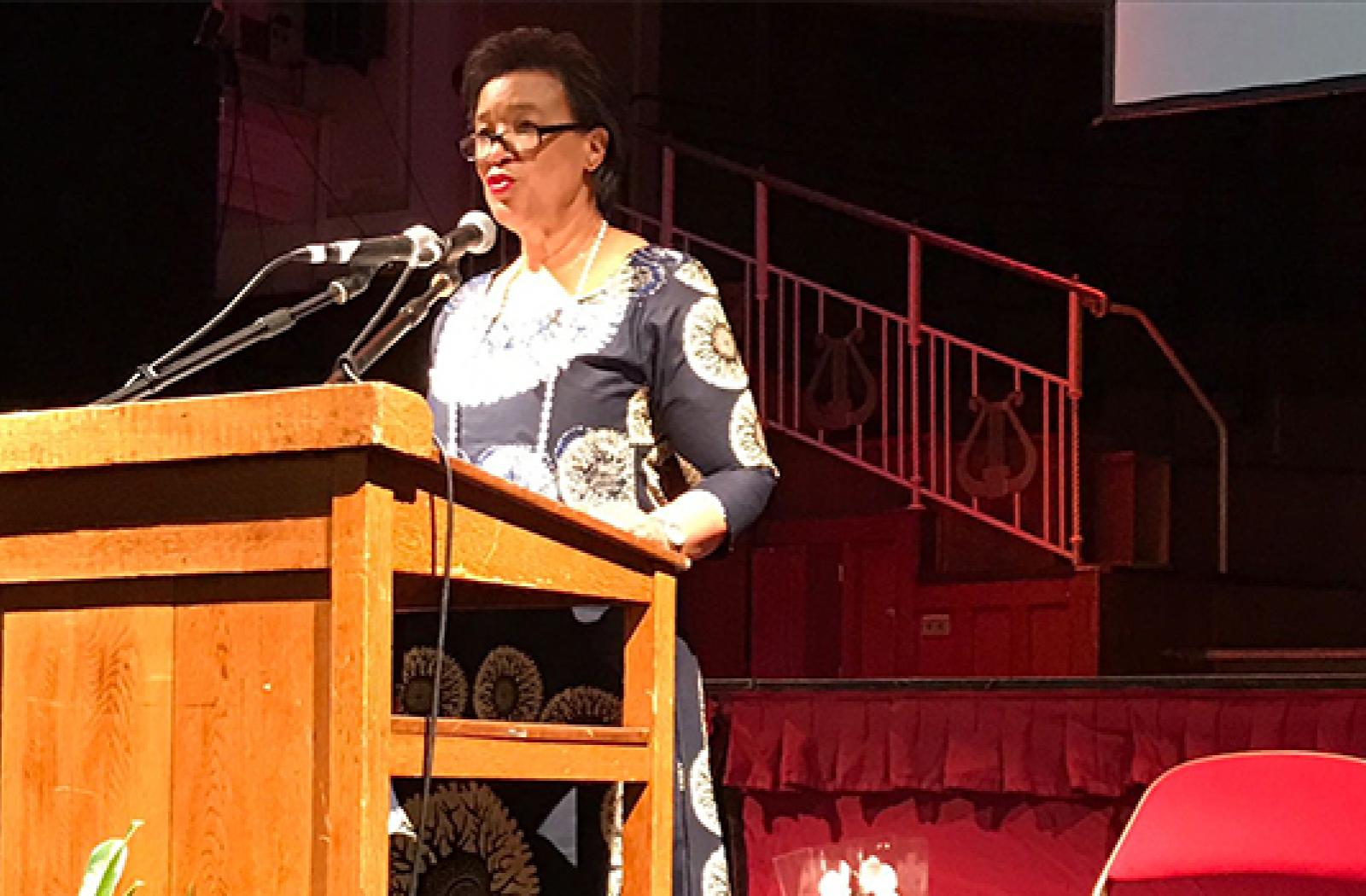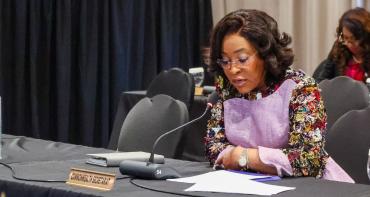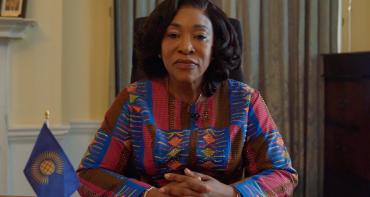Commonwealth Secretary-General Patricia Scotland has told the Wilberforce World Freedom Summit that it is likely that ways to end forced labour, modern slavery, human trafficking and the worst forms of child labour will be among global priorities to be considered when Commonwealth leaders meet next April.

Commonwealth Secretary-General Patricia Scotland has told the Wilberforce World Freedom Summit that it is likely that ways to end forced labour, modern slavery, human trafficking and the worst forms of child labour will be among global priorities to be considered when Commonwealth leaders meet next April.
The summit in Hull, in the north of England, is exploring several forms of slavery - from retail to organised crime.
The Secretary-General said that the Commonwealth Heads of Government Meeting (CHOGM) in London would focus on four principal areas under the general theme ‘Towards a Common Future’.
“One focus will be on ‘A more secure future’, and will include consideration of modern slavery, and ways in which, as the Commonwealth, we can enhance efforts to eradicate forced labour, modern slavery, human trafficking and the worst forms of child labour,” she said. “The aim will be to build on outcomes of other international meetings, including the Call of Action to end forced labour, modern slavery and human trafficking launched on the sidelines of the recent 72nd Meeting of the UN General Assembly.”
The Commonwealth is playing its part in promoting equality, human rights and the rule of law, while working with member governments, civil society and business to end slavery.
“I have created the Commonwealth Office of Civil and Criminal Justice Reform (OCCJR) to build on our shared inheritances of the common law, similar legislatures and judiciaries, and comparable or even interoperable systems of regulation.
"The purpose of the Office is to craft templates for legislation, institutional reform and best practice across a broad range of disciplines and fields of activity, including the media and freedom of expression, also encompassing anti-corruption, procurement, and many other areas relating to public and corporate conduct,” said Secretary-General Scotland.
Over the past few years, one aspect of slavery to which the Commonwealth has devoted particular attention is child, early and forced marriage. Current prevalence rates are cause for serious concern. Forty-three per cent of women in the Commonwealth married when they were younger than 18 years old. That amounts to 24,000 girls every day, or 17 girls every minute. The Secretariat has worked with a range of stakeholders to end this practice, including parliamentarians, traditional leaders, national human rights institutions, civil society and child marriage survivors.
Earlier this month, as part of its advocacy in the run-up to CHOGM, the Commonwealth organised a panel discussion on ending modern slavery at the Human Rights Council in Geneva. It was convened in partnership with the Commonwealth Human Rights Initiative and the Permanent Missions of Australia and the United Kingdom.
The Secretary-General said that the Commonwealth’s convening power led to global impact and called on countries to learn from one another by pointing out what worked or did not work while offering mutual support.
“Combined action is needed, and a range of approaches, to tackle the issue of modern slavery and promote equality of opportunity,” she said. “This includes attention to legislation, enforcement and political mobilisation, and on public awareness and education, with community approaches that include religious and cultural leaders. In this regard, I have initiated work at the Commonwealth Secretariat under the heading ‘Faith in the Commonwealth’, and we have a new team dedicated to working on that strand of our engagement.”
The Secretary-General pointed out that the Commonwealth Charter stated that gender equality and women’s empowerment are essential for human development and basic human rights. Commonwealth emphasis is on empowerment and inclusion in society, and these are linked to the risks associated with human trafficking.
“Issues that affect the most vulnerable impact on our social and economic development, as well as marginalise those who are a key part of our communities,” she said. “It is incumbent on all of us to take steps to ensure this is stopped, and the perpetrators brought to justice.”



